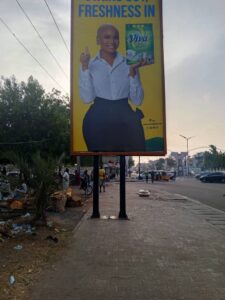By Hannatu Sulaiman Abba
In 1991, a powerful speech by African activist Nelson Mandela emphasized the struggle against injustice. He said, “To deny people their human rights is to challenge their very humanity.”
This quote brings to mind how the ancient city of Kano has long upheld its cultural tradition of welcoming people from all parts of the world, as captured in the famous saying: “Kano ko da me kazo, an fika.”
Without a doubt, the appointment of Barrister Muhyi Magaji by Kano State Governor Alhaji Abba Kabir Yusuf as the Chairman of the Kano State Public Complaint and Anti-Corruption Commission (PCACC) was one of the best decisions made in the interest of justice and equity.
Barr. Muhyi’s role as chairman is marked by a commendable profile and extensive experience, driven by a clear vision to fight corruption without bias. His leadership laid a solid foundation that continues to provide the less privileged access to justice and fairness.
MY ENCOUNTER WITH BARR. MUHYI
In 2018, I joined Guarantee Radio 94.7 FM, Kano, as a reporter. At the time, the station was gaining traction as a new voice in media. We were all working hard to secure sponsorships for our programs, many of which we also hosted.
Motivated by the increasing oppression faced by ordinary citizens, I developed a program focused on public complaints. I submitted my proposal, and the next day, Barr. Muhyi approved and sponsored the program.
The show, Gatan Mara Gata, became an iconic radio platform that promoted justice, fairness, and transparency. It gave hope to the common man, reaffirming their belief in the justice system and fundamental human rights.
As a journalist eager to understand the Commission’s inner workings, I often interacted with people visiting the PCACC office. I was struck by their satisfaction—they received justice without paying a dime or needing a connection. Barr. Muhyi’s office served as a mini mobile court, addressing cases from across Kano State. The energy and accessibility of the commission made it more approachable than the courts or traditional rulers.
However, our relationship with PCACC hit a rough patch after a report was published that misquoted Barr. Muhyi. In response, he visited Express Radio, visibly angry, to address the matter.
FAIR JUSTICE FOR ALL
Recently, social media buzzed with controversy involving the Kano State Urban Planning and Development Authority (KNUPDA) and TikTok influencer Rahama Sa’idu. She accused KNUPDA of demolishing her shop along UDB Road in Tarauni LGA without prior notice.
Official reports indicated that the affected structures, including Rahama’s shop, were illegally built on public pathways. Her signboard had previously been removed for encroachment.
In response, Rahama used her TikTok account to deny KNUPDA’s claims, insisting she hadn’t received any notice. She took her complaint to the PCACC, and Barr. Muhyi promptly summoned KNUPDA officials to investigate the legality of their actions.
This act drew mixed reactions—some praised the Commission’s impartiality, while others accused it of overreach, particularly on social media where political loyalties influenced opinions.
Barr. Muhyi’s intervention was not about Rahama’s vulnerability but about protecting the rights of every citizen. Those who truly understand Kano’s diverse and economically active landscape know the importance of justice for all, regardless of status.
PCACC’s role extends beyond fighting corruption. It addresses administrative injustice with powers to investigate, summon witnesses, gather evidence, and recommend appropriate actions. Every complaint—regardless of the complainant’s status—is handled with diligence and fairness.

KNUPDA’S RESPONSE TO MUHYI’S ACTIONS
On April 25th, KNUPDA issued a press release calling on all individuals, businesses, and advertising agencies to register their signboards and structures within Kano metropolis. The aim was to assess their compliance with urban planning regulations.
This response, in essence, acknowledged the PCACC’s concerns. It showed Muhyi’s influence and the need for public awareness before enforcing such actions.
MUHYI: ICON OF GATAN MARA GATA
As the name implies, Gatan Mara Gata means “the voice of the voiceless.” To the public, Rahama wasn’t vulnerable, but the question remains: who can stand up to the government alone?
Despite her social media flamboyance, Rahama represents many who feel powerless. Kano has always been a mother state to many in Northern Nigeria, embracing anyone who respects its traditions and values.
Barr. Muhyi has consistently defended Kano’s integrity from corrupt individuals, especially politicians. His team’s efforts uncovered several illegal warehouses of palliatives since the COVID-19 era. His proactive leadership sends a clear message: no one is above the law.
His administration has expanded the Commission’s mandate to include marriage and family dispute resolution. Each week, Barr. Muhyi quietly mediates in numerous family and traditional conflicts, protecting women and children in the process. If the PCACC publicized all the cases it handles, many respected public figures would be unmasked.
A JUST SOCIETY NEEDS STRONG LEADERS
In a democracy guided by the Nigerian Constitution, agencies like PCACC need courageous and impartial leaders. Past administrations recognized Barr. Muhyi’s potential. While he may not be a saint, his contributions deserve praise and encouragement.
CONCLUSION
I am known to speak the truth, even when it doesn’t favor the majority—especially on issues of human rights, education, health, and people with disabilities.
From my perspective, appointing Barr. Muhyi Magaji by Governor Abba Kabir Yusuf is one of his greatest legacies. It has brought recognition and justice to Kano State.
As Martin Luther King Jr. wisely said, “Injustice anywhere is a threat to justice everywhere.”


